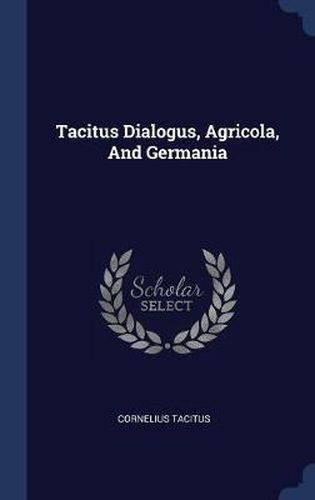Readings Newsletter
Become a Readings Member to make your shopping experience even easier.
Sign in or sign up for free!
You’re not far away from qualifying for FREE standard shipping within Australia
You’ve qualified for FREE standard shipping within Australia
The cart is loading…






This historic book may have numerous typos and missing text. Purchasers can usually download a free scanned copy of the original book (without typos) from the publisher. Not indexed. Not illustrated. 1908 edition. Excerpt: … 133 GERMANY Chapter II Page 90, 1. 15. The meaning appears to be this. The first tribe which crossed the Rhine was called Gennani. To alarm the Gauls they said that all the tribes beyond the Rhine were Germani. Thus the Gauls came to know the whole race by the name of a single tribe: and subsequently the race accepted this tribe-name as their own. Similarly the Italians knew the Hellenes as Graeci, and the French now call the Germans Allemands (Allemanni). If the name Germani is of Celtic origin it may mean Loud-shouters or possibly Neighbours. Chapter III 1. 16. Tacitus means a German hero with attributes similar to those of Hercules. The allusion may be to Irmin or to Thor. Tacitus throughout calls the German gods by corresponding Roman names. L 19. Shield-song. This translation rests on the supposition that barditum, the best-supported reading, is formed from bardbi, ‘a shield.’ Chapter VI Page 92, 1. 25. The words ‘to the right’ cannot be correct in the text. Tacitus could not have thought that the German cavalry wheeled always to the right, and never to the left. He means that, whether they rode forwards, or made a flank turn, they always kept in line, never moving in single file, but forming- the radius of a circle, each horseman adapting his speed to his position. Chapter VII Page 93, 1. 20. grove. See chapters ix and xliii. 1. 28.. examine. The meaning may be ‘ they demand wounds’, i. e. as a proof of courage. Chapter VIII Page 94,1. 14. A sly allusion to the canonization of Drusilla, Caligula’s sister, and Nero’s wife, Poppaea Sabina. Chapter IX 1. 15. Mercury. The allusion is probably to the German Wuodan or Woden (Norse Odin), whose name survives in Wednesday. Cf. note on chap. iii. 1. 17. Mars. The German Tiu (Norse Tyr), …
$9.00 standard shipping within Australia
FREE standard shipping within Australia for orders over $100.00
Express & International shipping calculated at checkout
This historic book may have numerous typos and missing text. Purchasers can usually download a free scanned copy of the original book (without typos) from the publisher. Not indexed. Not illustrated. 1908 edition. Excerpt: … 133 GERMANY Chapter II Page 90, 1. 15. The meaning appears to be this. The first tribe which crossed the Rhine was called Gennani. To alarm the Gauls they said that all the tribes beyond the Rhine were Germani. Thus the Gauls came to know the whole race by the name of a single tribe: and subsequently the race accepted this tribe-name as their own. Similarly the Italians knew the Hellenes as Graeci, and the French now call the Germans Allemands (Allemanni). If the name Germani is of Celtic origin it may mean Loud-shouters or possibly Neighbours. Chapter III 1. 16. Tacitus means a German hero with attributes similar to those of Hercules. The allusion may be to Irmin or to Thor. Tacitus throughout calls the German gods by corresponding Roman names. L 19. Shield-song. This translation rests on the supposition that barditum, the best-supported reading, is formed from bardbi, ‘a shield.’ Chapter VI Page 92, 1. 25. The words ‘to the right’ cannot be correct in the text. Tacitus could not have thought that the German cavalry wheeled always to the right, and never to the left. He means that, whether they rode forwards, or made a flank turn, they always kept in line, never moving in single file, but forming- the radius of a circle, each horseman adapting his speed to his position. Chapter VII Page 93, 1. 20. grove. See chapters ix and xliii. 1. 28.. examine. The meaning may be ‘ they demand wounds’, i. e. as a proof of courage. Chapter VIII Page 94,1. 14. A sly allusion to the canonization of Drusilla, Caligula’s sister, and Nero’s wife, Poppaea Sabina. Chapter IX 1. 15. Mercury. The allusion is probably to the German Wuodan or Woden (Norse Odin), whose name survives in Wednesday. Cf. note on chap. iii. 1. 17. Mars. The German Tiu (Norse Tyr), …